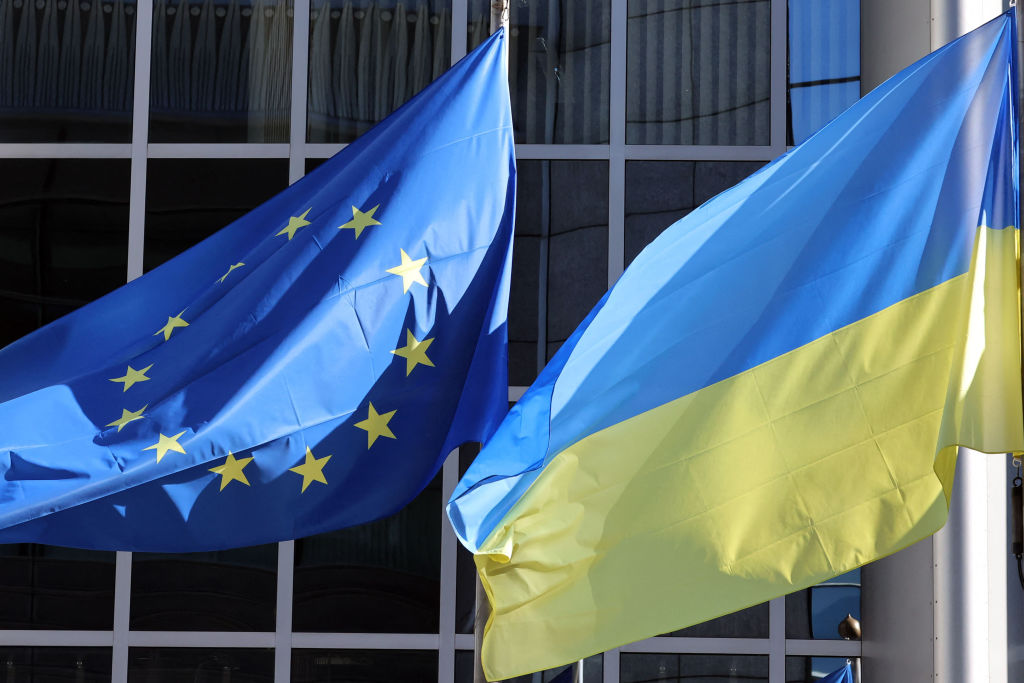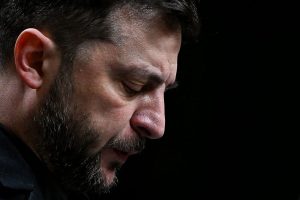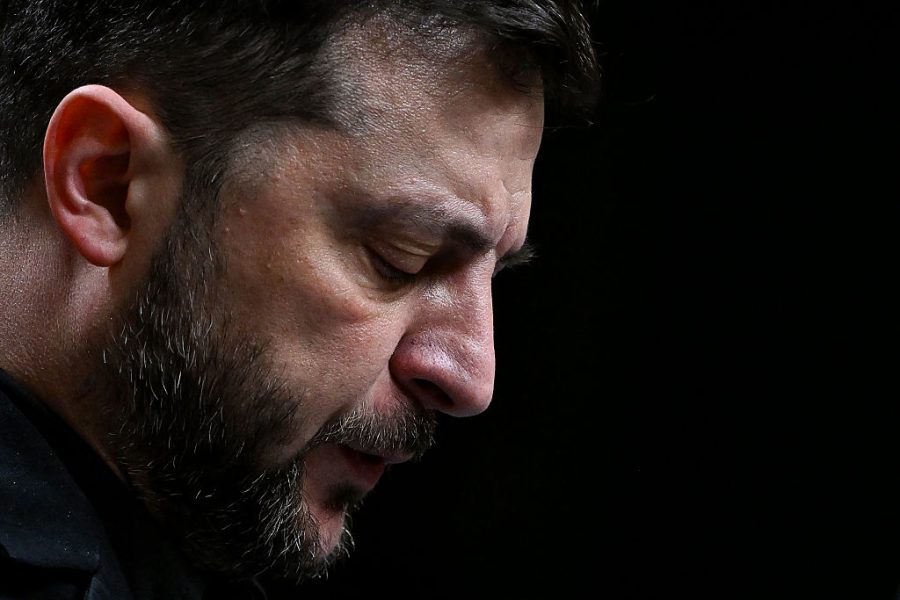The Europeans have been jolted awake from their deep Pax Americana slumber, when the continent was largely content to eat the spoils of economic prosperity and allow the United States to do the heavy lifting on all things security. And we have Vladimir Putin to thank for it.
Russia’s nearly week-long invasion of Ukraine has shocked the conscience of many who believed Europe would never return to the dark days of large-scale land warfare. Pictures and video footage of forty-mile-long Russian military columns bearing down on the Ukrainian capital of Kyiv, burnt-out Russian trucks on the side of the road, and Russian airstrikes in the center of Ukraine’s biggest cities (on March 1, Russian missiles took out Kyiv’s main radio and television tower, interrupting broadcasts) have pushed European leaders to do the unthinkable: assert themselves in their own neighborhood.
Putin has managed to make the European Union relevant again.
A week ago, if you’d told me that Germany of all places would suspend the $11 billion Nord Stream 2 pipeline, agree to kick Russian banks out of the SWIFT payment system, send anti-tank weapons to the Ukrainian army, and inject more than $100 billion into the struggling Bundeswehr, I would have thought you were crazy. And yet Germany did all of this within a matter of days. The fact that Olaf Scholz, a former finance minister who used to battle the German military during budget negotiations, was the one who made these decisions makes the transformation all the more amazing.
In the end, it wasn’t browbeating from multiple US administrations that pushed Berlin towards NATO’s 2 percent of GDP defense spending pledge, but rather a security crisis in its own neighborhood. As Rachel Rizzo, a senior fellow at the Atlantic Council, put it, “It’s hard to overstate the significance of Germany’s about-face over the last week. Long-held foreign policy norms seem to have evaporated before our eyes.”
The EU, an organization reeking of bureaucratic inertia, internal squabbles, and seemingly endless debate, is now acting like a decisive, unified bloc. Again, if you inquired a week ago as to whether the EU would unanimously agree to take action against the Russian Central Bank and freeze Russia’s euro-denominated foreign reserves (as of January 2021, 29 percent of Russia’s total reserves were in euros), I would have laughed in your face. But alas this is precisely what the EU did — and it did so in rapid fashion, two days after Moscow began its military operation. That is quite extraordinary given that so many of Europe’s big powers are heavily dependent on Moscow for energy and in the past have been reticent to antagonize the Kremlin.
Italy, the so-called soft underbelly of Europe, has hardened its gut and stepped up to the plate. Relations between Russia and Italy have traditionally been warm, at least compared to other European countries. Italian business conglomerates boast healthy ties with the Russian market; with exports north of $15 billion, Italy is Russia’s fourth largest market in the EU. The Italians also get 40 percent of their natural gas supplies from Russia. But if Putin thought he could bank on Rome slow-rolling EU sanctions measures, he was quickly disappointed. Italy has more to lose than most European countries, Prime Minister Mario Draghi told the Italian parliament on March 1. Even so, he said, “This does not diminish our determination to support sanctions that we deem justified and necessary.”
Will the toughest sanctions that have ever been imposed on a large power change Putin’s calculus on Ukraine? On this question, we simply don’t know. There’s no doubt the Russian economy is feeling the pressure. Russia is increasingly cut off from the world, whether it’s air travel, banking networks, technology imports, or sporting events. Russians are rushing to the nearest ATM to withdraw as much cash as they can. The ruble has lost about 30 percent of its value over the last five days. Russia’s richest men are starting to complain that the war in Ukraine is jeopardizing their business holdings, personal assets, and workers. Sanctions are ultimately about changing behavior; as best as we can tell, Putin still views the benefits of a military victory in Ukraine as worth the economic costs.
This, however, is only one part of the wider story. Another part is that, regardless of what transpires in Ukraine (and for the sake of the people there, let’s hope the war ends sooner rather than later), Europe is using the worst crisis on the continent in about a quarter-century to get back into the game on matters of European security. Contra those who say American leadership in Europe is indispensable and more important than ever, the Ukraine case study shows quite the opposite: European powers not only have the capability to take more responsibility for their own affairs, but will also exhibit the will to make good on that commitment.
If there’s a silver lining to this awful mess, perhaps this is it.

























